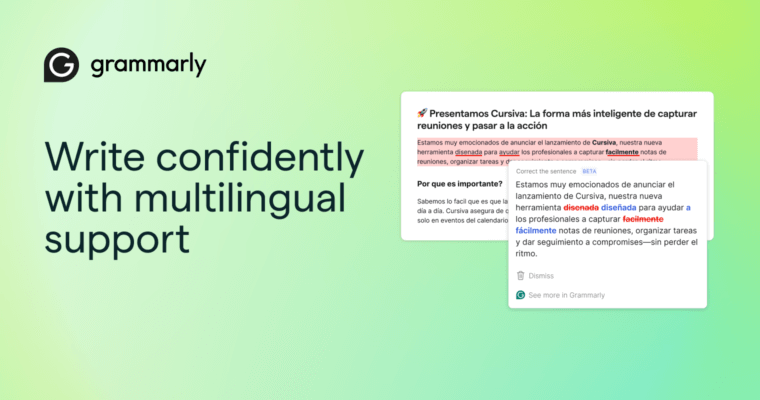
Today, we’re spotlighting a new Grammarly Pro check that’s designed to help you show more confidence in your writing.
What Is Hedging?
Take a look at some of your recent emails. What phrases do you tend to use when you’re making a suggestion or asking a (potentially uncomfortable) question? If you’re like most people, you may use a lot of phrases like “I think we should . . .” or “I feel like . . .” or “It would be great if . . .” All these phrases are forms of hedging—they’re little qualifiers that undermine what you’re saying.
Why Hedging Is a Problem
There are a few reasons a writer might hedge. Hedging makes your statements less direct, and sometimes that feels more polite, especially if you’re expressing disagreement or criticism. Hedging can also feel like an escape hatch. If you turn out to be wrong, well, it was just a random thought you had . . . But the feeling of safety you get from hedging is only that: a feeling. In reality, hedging makes you look uncertain and unconfident.
We believe in empowering everyone to communicate clearly, effectively, and confidently. We’re just getting started. https://t.co/KerzWLzbuG
— Grammarly (@Grammarly) March 14, 2018
How to Avoid Hedging
Hedging can become such an ingrained habit that it’s hard to even notice yourself doing it. Our new check alerts you to phrases that undermine your message and offers you clear and confident wording to use instead. Curious to see what it can do? Read on.
1 I think . . .
Hedging: I think we should set up a meeting.
Confident: Let’s set up a meeting.
2 I feel like . . .
Hedging: I feel like we could find space for one more person.
Confident: We could find space for one more person.
3 It would be great if . . .
Hedging: It would be great if you could turn in your application by 5:00 p.m. tomorrow.
Confident: Please turn in your application by 5:00 p.m. tomorrow.
4 Should be able to . . .
Hedging: I think I should be able to finish the research phase this week.
Confident: I can finish the research phase this week.
5 Basically . . .
Hedging: Basically, I’m still waiting for Tim to answer my questions.
Confident: I’m still waiting for Tim to answer my questions.
When you show confidence in your own ideas, others are more likely to support them, too. Although writing without hedging phrases can feel awkward and abrupt at first, it gets easier with a little bit of practice. Plus, you don’t have to go it alone. We’re here to help!
![]()






